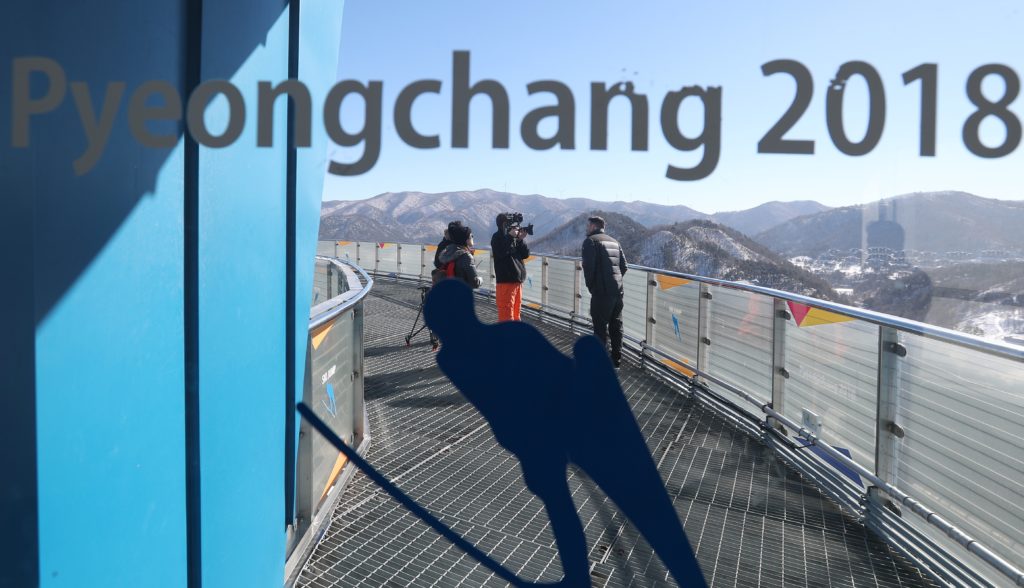The Peninsula
Could the PyeongChang Winter Games Help China to Signal a Softening Position on THAAD Sanctions?

By Troy Stangarone
Since South Korea decided to move forward with the deployment of the Terminal High Altitude Area Defense (THAAD) system in the aftermath of North Korea’s fourth nuclear test last year, China has made its opposition to the deployment clear and attempted to use targeted economic pressure to convince South Korea to not move forward with the deployment. However, with Seoul’s decision to move forward with the deployment of THAAD, Beijing’s policy has had little impact other than to weaken relations between South Korea and China. As Beijing looks for ways to adjust its policy, the 2018 Winter Olympics could provide an avenue for China to signal a softening of its position on sanctions.
China has not openly admitted to sanctioning South Korea over the deployment of THAAD, but the steps it has taken since the decision are clearly designed to send a signal to Seoul. These have been calculated to ensure that while specific industries feel concentrated economic difficulties to ensure that Beijing’s message is received, they are also designed to not interfere with the broader processing trade between South Korea and China that might have a more significant impact on jobs in China.
As a result, China has chosen symbolic targets that are either related to the deployment of THAAD, or that will touch areas of significance to South Korea such as Hallyu. The most direct target has been Lotte, which owned the golf course on which THAAD was deployed. It has seen nearly all of its stores closed for health and safety inspections and will now be pulling out of the Chinese market completely due to mounting loses. On the cultural side, early targets included K-Pop stars, as well as Korean TV and movie stars. Beijing then moved to ban the sale of group travel sales to South Korea, which as impacted South Korea’s tourism industry which was highly dependent upon Chinese tourists. While these are not all of the actions that China has taken or potentially taken related to THAAD, they each clearly demonstrated Beijing’s willingness to use economic leverage to try and sway Seoul’s decision on THAAD.
China is unlikely to change its position on THAAD, but with its economic pressure having little impact on South Korea’s defense policy it may be considering a change of course in its tactics. There are some indications that it may already be doing so with the recent renewal of a currency swap agreement between China and South Korea, as well as the first meeting between the two countries’ defense ministers in two years. However, there are economic reasons why China might have decided to renew the currency swap agreement and with tensions rising with North Korea renewing high level military contacts is prudent.
Whether these steps are the beginning of a change of course for China or driven by other factors, the upcoming 2018 Winter Games could provide an opportunity for Beijing to clearly signal a change of course if it has chosen to do so. At the moment, the official ticket broker in China is reported to have only requested 3,000 tickets for the PyeongChang Games. Loosening the reigns on travel and boosting Chinese participation at the games would be one way to signal that China is backing off of using economic pressure. Allowing more fans to attend is in China’s interest. The 2022 Winter Games will be held in Beijing and by tradition the mayor of the current host passes the Oslo flag to the mayor of the next host city, which also oversees the end of the Closing Ceremony. Does Beijing really want the Olympic stadium to be filled with only a token number of Chinese fans as the torch is metaphorically passed to the Beijing organizers?
There is also a tradition of world leaders attending either the Opening Ceremony or Closing Ceremony of the Olympic Games, perhaps most notably when Prime Minister Abe Shinzo made a surprise appearance at the 2016 Rio Olympic Games as part of Japan’s part of the Closing Ceremony in anticipation of the 2020 Olympic Games in Tokyo. While it unlikely that Xi Jinping would make such a gesture, his attendance at either the Opening Ceremony or Closing Ceremony, along with positive remarks about South Korea at the Games, could also signal that China is prepared to shift course.
Since China has never formally said that it was using economic pressure to convince South Korea to reverse its decision on the deployment of THAAD, there will never be a clear statement that the sanctions on Korean firms has ended. However, if Beijing is looking to end a policy that has provided little benefit to China’s objectives, allowing more Chinese tourist to visit South Korea during the Olympics coupled with a positive visit to the Games could be a good way to do so.
Troy Stangarone is the Senior Director for Congressional Affairs at the Korea Economic Institute of America. The views expressed here are the author’s alone.
Photo from the Republic of Korea’s photostream on flickr Creative Commons.
